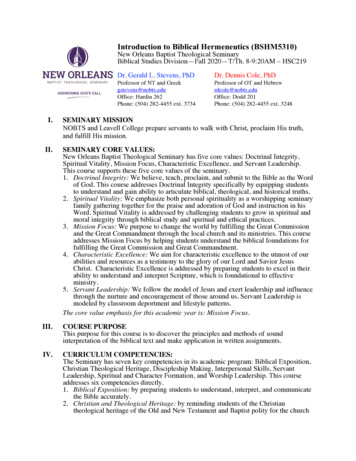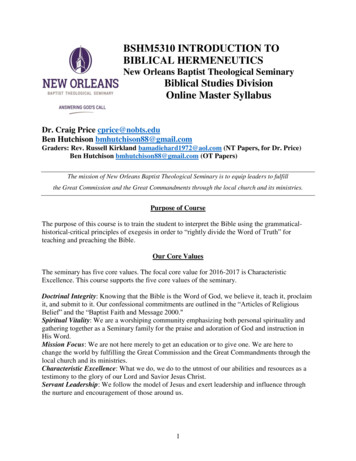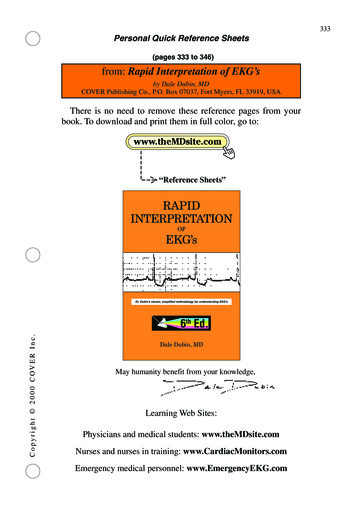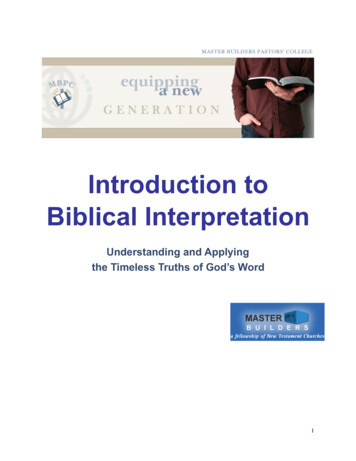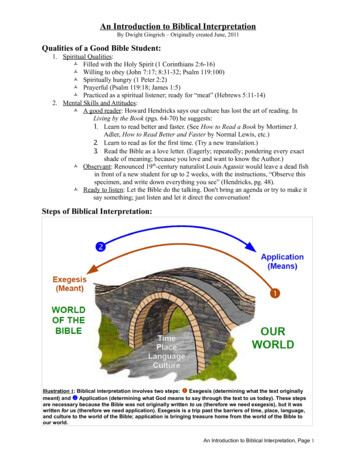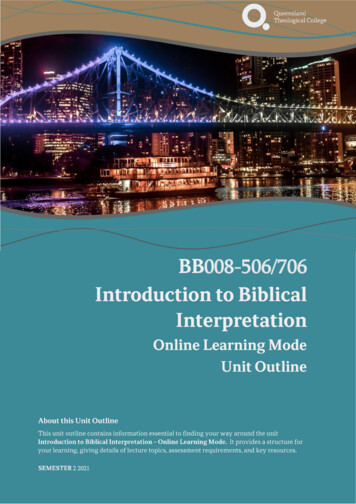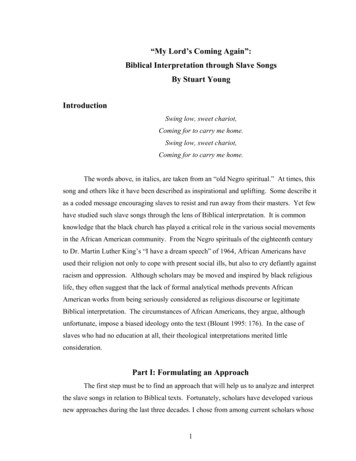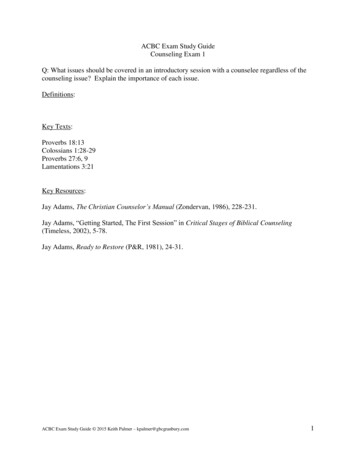
Transcription
Introduction to BiblicalInterpretation
Welcome to Lesson 1!
Objectives for today Get to know each other better and become a learning community Become familiar with the overall approach to the course and its apparatus Gain an understanding and appreciation for why biblical interpretation may be the singlemost important discipline to learn in the course of one’s spiritual growth Answer any questions or concerns you may have Be prepared for next week’s class
Introductions Your name A foreign language you speak is
Housekeeping Syllabus Objectives Books Reading Assignments Schedule Writing Assignments Pre-/Post-tests
Why Study Biblical Interpretation?
Why Study Biblical Interpretation? Number one predictor of spiritual growth is Bible engagement Critical for proper understanding and instruction The linking step between Observation and Application Takes us beyond observation Essential for proper application
Challenge of Bible Interpretation We’re responsible to feed ourselves We must practice and teach sound doctrine (Titus 2:1) Bible study is a life-long discipline—we must continue to grow
Problems in Bible Interpretation Time gaps Space gaps Customs gaps Language gaps Writing gaps Spiritual gaps
Definitions in Interpretation Hermeneutics: Science and art of interpreting the Bible. Exegesis: Determining the biblical meaning of the text within its contexts. Exposition: Communicating the meaning of a text and its relevance to hearers. Homiletics: Science and art through which meaning and relevance of biblical text iscommunicated via preaching. Pedagogy: Science and art through which meaning and relevance of biblical text iscommunicated via teaching.
Qualifications for Interpreting Scripture Regenerate Reverence and interest Prayerful attitude Humility Willingness to obey Dependence on Holy Spirit
The Role of the Holy Spirit Does not make our own interpretations infallible Does not imply He imparts some “hidden” meaning Does not function well with the sin-impoverished believer Does guide into ALL truth Does not lead to sudden flashes of insight Does mean that the Bible was intended to be understood by ALL believers
Implications of Interpretation Some work is required Judgment and reason, not preconceptions and prejudices Does not mean human teachers are unnecessary Does not preclude the clarity of Scripture
The Clarity of Scripture Difficult to understand doesn’t equal unable to understand Remember: the Bible is a book so it’s to be read and understood The priesthood of all believers What was clear then may need clarifying now (“mind the gaps”) Profundity leads to challenging work
So For Today What’s one thing you didn’t know before class that you do now? What’s one thing that surprised you to learn? What’s one thing that reinforced something your already knew? What’s one thing that you still don’t quite “get?” What’s one thing you wish to remember after you leave?
For Next Week No class meeting next week (Week 2 in Syllabus) Read Zuck chapters 1 & 2 ( 60 pgs)—Don’t get bogged down in Ch. 2! Two passages of Scripture that you’ve found difficult to understand Be sure you’ve taken the pre-test!
Introduction to Biblical Interpretation. Welcome to Lesson 1! . Gain an understanding and appreciation for why biblical interpretation may be the single-most important discipline to learn in the course of one’s spiri

